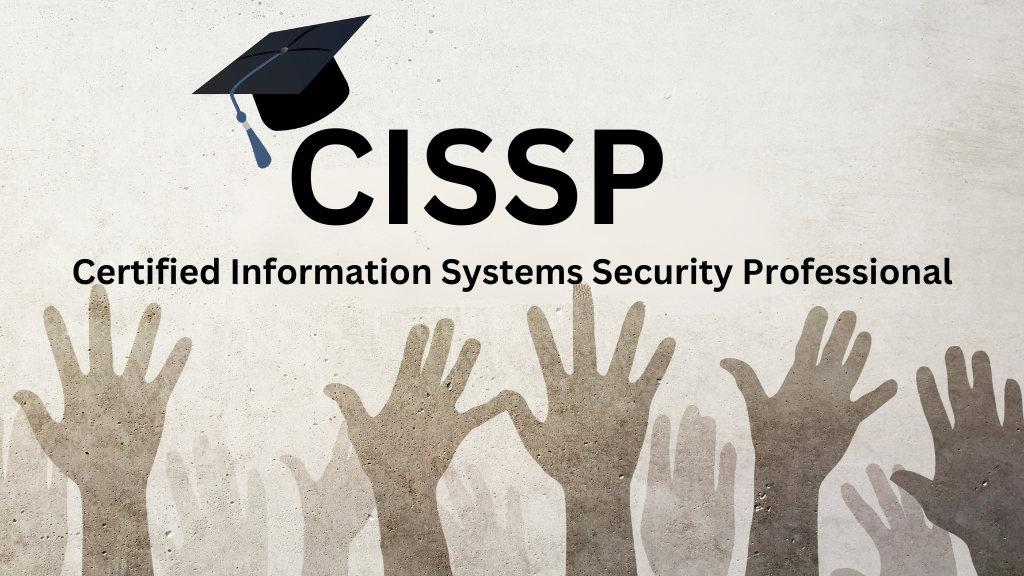In information security, certifications are crucial in demonstrating expertise and enhancing career prospects. Two widely recognized certifications in the field are Certified Information Systems Security Professional (CISSP) and CompTIA Advanced Security Practitioner (CASP). While both certifications focus on information security, they have distinctive characteristics and target different professional levels. This article will explore the differences between CISSP and CASP, examining their scopes, requirements, career benefits, and more.
Understanding CISSP

Certified Information Systems Security Professional (CISSP) is a highly regarded certification offered by (ISC)². It validates an individual’s expertise in designing, implementing, and managing cybersecurity programs. CISSP covers various domains, including security and risk management, asset security, security architecture and engineering, communication and network security, identity and access management, security assessment and testing, security operations, and software development security.
Introducing CASP
CompTIA Advanced Security Practitioner (CASP) is a certification designed for experienced IT professionals specializing in information security. CASP focuses on technical knowledge and skills required for advanced cybersecurity roles, emphasizing critical thinking and judgment across various security disciplines. The domains covered by CASP include risk management, enterprise security architecture, enterprise security operations, technical integration of enterprise security, and research, development, and collaboration.
Scope and Focus
CISSP has broader scope and aims to provide a holistic understanding of information security management across various domains. It covers both technical and managerial aspects of cybersecurity, making it suitable for professionals aspiring to lead and manage security programs within organizations.
On the other hand, CASP has a narrower focus and concentrates on advanced technical skills required for designing and implementing security solutions. It delves deep into technical concepts, making it an ideal choice for professionals specializing in technical security roles or working as consultants and architects.
Certification Requirements
To obtain the CISSP certification, candidates must have at least five years of cumulative paid work experience in at least two of the eight CISSP domains. They must also pass the CISSP examination of 250 multiple-choice questions.
For CASP certification, candidates should have a minimum of ten years of experience in IT administration, including at least five years of hands-on technical security experience. They need to pass the CASP examination, which consists of performance-based and multiple-choice questions.
Career Opportunities and Advancement
CISSP certification opens up a wide range of career opportunities. CISSP-certified professionals often pursue roles such as security analyst, security consultant, IT auditor, security architect, and security manager. The certification demonstrates expertise and can lead to higher-paying positions and increased job responsibilities.
CASP certification is beneficial for professionals aspiring to advanced technical security roles. It can enhance career prospects for security engineer, cybersecurity architect, systems security analyst, and cybersecurity consultant positions. CASP-certified professionals often work on complex security projects and have the potential for career growth and higher salaries.
Salary Comparison

Regarding salary, both CISSP and CASP certifications can significantly impact earnings. According to industry reports, the average annual salary for CISSP-certified professionals in the USA is about $127k per year, depending on experience and job role.
CASP certification holders also enjoy competitive salaries. The average annual salary for CASP-certified professionals is about $97k per year, depending on factors like experience, job responsibilities, and geographical location.
Certification Validity and Renewal
CISSP certification remains valid for three years. To maintain the certification, professionals must earn Continuing Professional Education (CPE) credits, demonstrating their commitment to ongoing education and staying updated with the latest industry trends. They need to earn and submit a minimum of 40 CPE credits annually.
CASP certification also has a validity period of three years. To renew CASP, professionals must earn Continuing Education Units (CEUs) and submit the required number of units within the renewal cycle. They must accumulate at least 75 CEUs, with at least 50% directly related to the CASP certification.
Exam Difficulty and Pass Rates
The CISSP exam is known for its difficulty, requiring candidates to understand various domains comprehensively. The pass rate for the CISSP examination hovers around 30-40%, making it a challenging certification to achieve. However, with diligent preparation and the right resources, success is attainable.
The CASP exam is also challenging, focusing on practical applications and real-world scenarios. The pass rate for the CASP certification ranges from 60-70%, which is relatively higher than the CISSP exam. Adequate preparation and hands-on experience are crucial for success in the CASP examination.
Industry Recognition and Demand
Both CISSP and CASP certifications are highly regarded in the industry. CISSP is globally recognized and sought after by organizations worldwide, especially those in government, finance, and healthcare sectors. CASP is also recognized and respected, particularly among employers seeking professionals with advanced technical security skills.
The demand for CISSP-certified professionals is consistently high due to the critical need for skilled cybersecurity experts. CASP-certified professionals are also in demand, particularly for technical security roles and projects that require advanced expertise.
Selecting the Right Certification

Choosing between CISSP and CASP depends on individual career goals, experience, and areas of interest. If you aspire to lead and manage security programs or work in a managerial capacity, CISSP may be the ideal choice. On the other hand, if you wish to specialize in advanced technical security roles and work on complex projects, CASP may be the better fit.
Consider your experience, expertise, and long-term goals to make an informed decision. Ultimately, both certifications offer valuable knowledge and recognition in information security.
Conclusion
CISSP and CASP are two valuable certifications in the cybersecurity field. CISSP offers a comprehensive understanding of security management, while CASP focuses on technical implementation. Depending on career goals, individuals can choose the certification that aligns with their desired expertise.
For further cybersecurity support and expertise, NextDoorSec is a trusted firm that offers comprehensive security solutions and services, helping individuals and organizations stay ahead of emerging threats and enhance their cybersecurity capabilities.






0 Comments